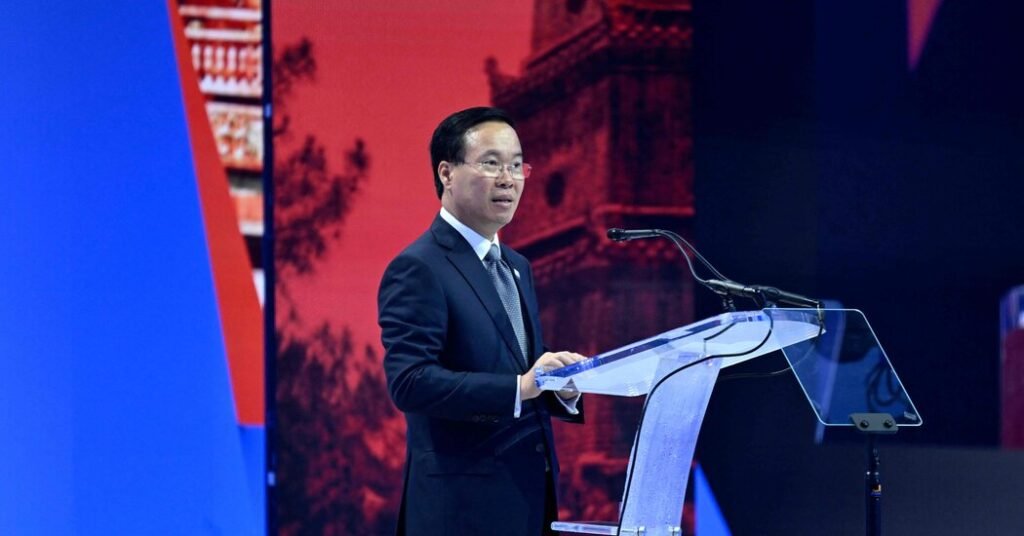The Communist Party of Vietnam has ruled the country for nearly half a century, often boasting unity and longevity. It is one of the world’s last remaining communist dictatorships.
It has also become one of Asia’s fastest growing economies and a key player in the growing US-China rivalry and has managed to balance its interests between the two powers. In recent years, many foreign companies and investors have flocked to Vietnam, which has touted its political stability by presenting itself as an alternative to China as a manufacturing hub.
But the announcement on Wednesday that President Vo Van Thuong had resigned, the second president to step down in just over a year amid corruption allegations, has undermined that message of stability, even though the position is largely ceremonial. The resignation may spook investors.
Here’s what you need to know about Vietnam’s leadership:
Who is responsible?
Unlike China, Vietnam, a country of 99.5 million people, has no supreme leader. Instead it is governed by “four pillars” of leadership: the general secretary of the Communist Party, the President, the Speaker of the Parliament and the Prime Minister.
Power rests largely with Nguyen Phu Trong, the head of the Communist Party, who is serving an unprecedented third five-year term as party chief.
How are leaders chosen?
The Communist Party chooses its leadership every five years during a party congress. Delegates elect a 200-person Central Committee, which then votes on members of the Politburo, the party’s highest decision-making body. The Politburo, which now consists of 18 members, selects the “four pillars” of leadership. This whole decision-making process is extremely opaque.
After the resignation of the previous chairman, Nguyen Xuan Phuc, in January 2023, the Central Committee held an emergency meeting two months later, introducing Mr. Thuong as chairman. Both resigned, authorities said, after violating Communist Party rules, a euphemism for corruption.
Even so, the key issue in Vietnam’s political elite remains the choice of a replacement for Mr. Trong, who is 79 and in poor health. He has yet to name a successor and analysts say the footwork is now on for the next leadership transition in 2026.
What is life like under such leadership?
Vietnam has emerged as one of Asia’s economic success stories. Beginning in the mid-1980s, Communist Party leaders implemented policies that transformed the predominantly agricultural economy into a global manufacturing hub. In recent years, it has been a big beneficiary of the US-China trade war and tough coronavirus restrictions imposed by Beijing as foreign manufacturers chased an alternative supply chain to China.
Nike, Lululemon and Adidas make their clothes in Vietnam. Apple’s suppliers are now trying to make the brand’s watches and MacBooks there.
But Vietnam remains one of the most oppressive countries in Asia. Freedom of speech and freedom of assembly are heavily restricted, with critics of the government often jailed. More than 160 people are currently imprisoned in Vietnam for exercising their basic rights, according to Human Rights Watch. Many of them are journalists, bloggers and environmentalists who have been imprisoned for expressing opposing views.

